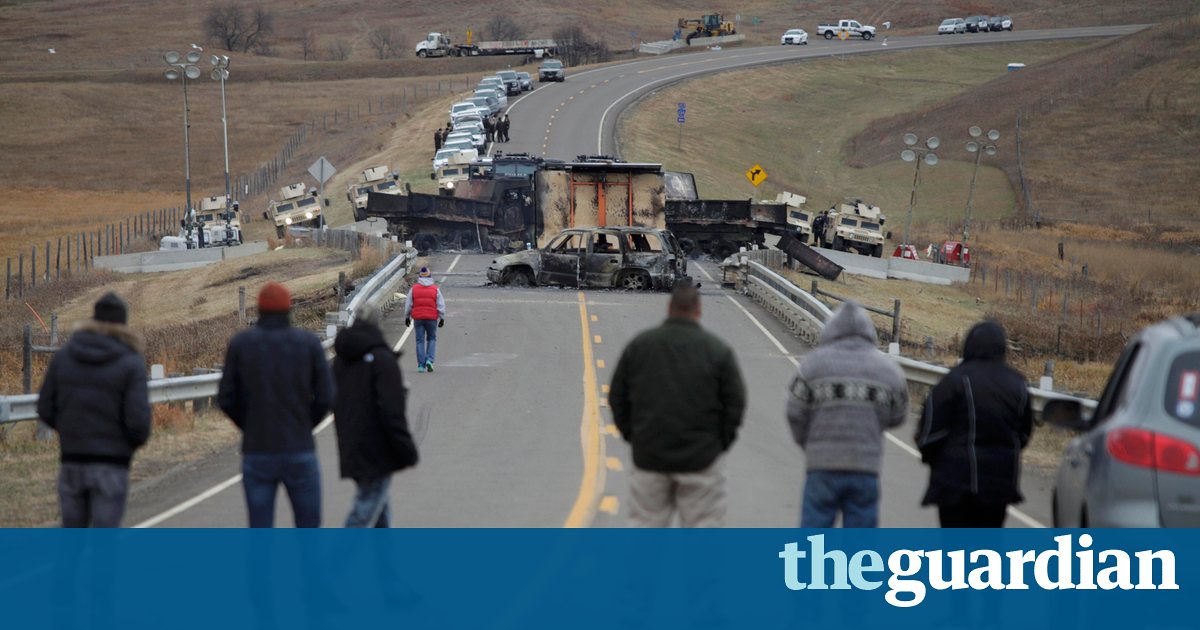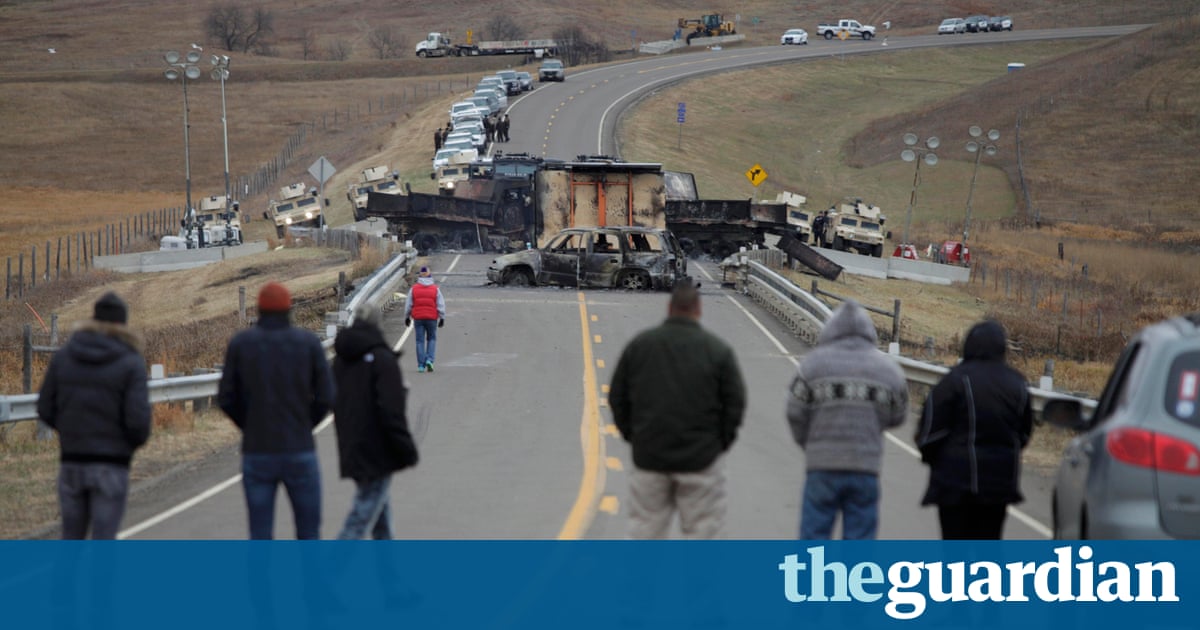Dakota pipeline protesters set for ‘last stand’ on banks of Missouri river

Completion of controversial oil pipeline near as work moves quickly, but one protester says: There is no time for waiting any more

Native American protesters are preparing to take a last stand against the Dakota Access pipeline after police raided their camps and arrested hundreds, paving the way for construction of the final stretch of the controversial oil project.
The Standing Rock protesters in North Dakota have been fighting the $3.8bn pipeline since April but were dealt a blow last week when police successfully pushed them off the property where construction is rapidly advancing.
While claims of excessive use of force by police and inhumane treatment in jail have sparked national outrage, native leaders camped out in the cold in Cannon Ball said they have also grown increasingly concerned that time is running out to stop the project on the ground. Pipeline workers, they say, are getting frighteningly close to the sacred water of the Missouri river.
There isnt much land left between the water and the equipment, said Cheryl Angel, a member of the Sicangu Lakota tribe who in the spring helped form the first Sacred Stone camp for protesters who call themselves water protectors.
Theyre right there. They have breached our sacred ground. There is no time for waiting any more, the 56-year-old said, tears streaming as she gestured toward the water and encroaching pipeline. It is almost complete. All they need to do is go under that river.

It is unclear when the final phase of construction could finish, but native activists on Sunday said it appeared the project was within a few miles of the water and that the construction crew seemed to be working at a fast pace. The North Dakota portion of the 1,172-mile pipeline was originally scheduled for completion by November.
A judge has denied a request from tribal leadership to block construction but last month, as protests heated up, a number of federal agencies said the government would hold off on issuing permits to dig on federal land near or under the Missouri river.
The government has not provided an update since. Silence from President Barack Obama and the continuing expansion of the pipeline have increased anxiety for activists.
Protesters have long argued that the pipeline which would transport 470,000 barrels of crude oil from the Bakken oil field to a refinery near Chicago poses a major threat to the water supply and is destroying sacred native lands.
The demonstrations, which have grown into a national symbol of indigenous rights and climate change activism, have resulted in more than 400 arrests, with local law enforcement officials accusing Native American activists, journalists and film-makers of rioting, trespassing, resisting arrest and a number of other serious felony charges.
Over the weekend, many of the Native American protesters were recovering from the recent mass arrests, reuniting with loved ones and hugging each other as they braced for what could be the final showdowns.
Im tired, an exhaustion I cant sleep away, said Prairie McLaughlin, a 33-year-old protester, sitting inside the teepee in which she has been camping. She said that despite the brutality she and others have faced from local police, I feel like failure is not an option.
Read more: https://www.theguardian.com/us-news/2016/oct/31/north-dakota-access-pipeline-protest-last-stand